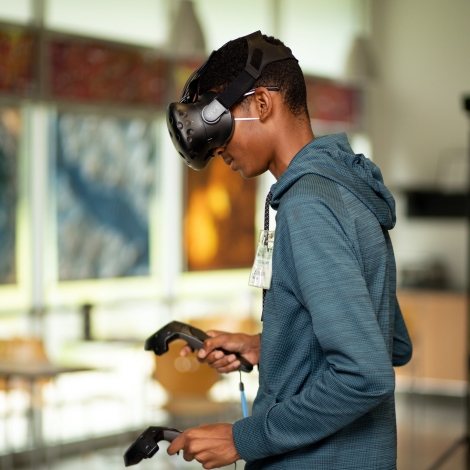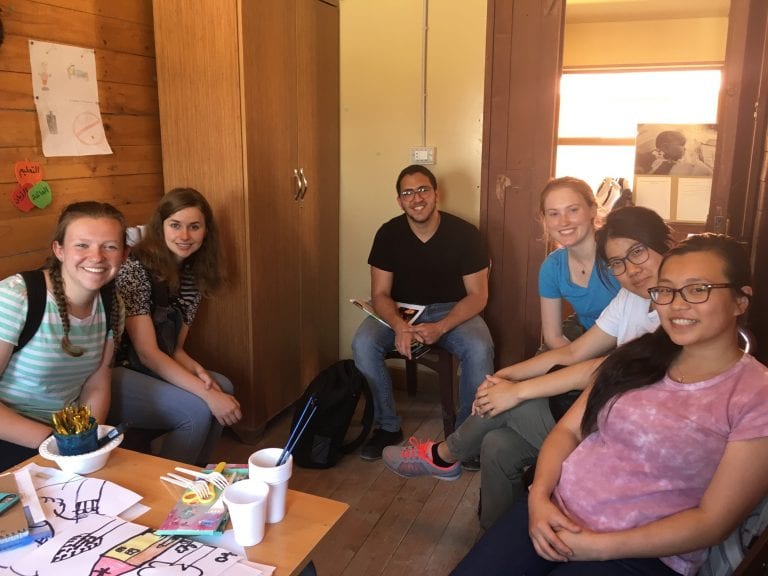The coronavirus pandemic continues to dictate what we can and can’t do, and despite schools starting to slowly re-open, a lot of parents will still have to take the role of substitute teachers. Fortunately, parents have resources available to help children learn skills in the sciences, technology, engineering and mathematics at home.
Here we highlight what you can do, how to do it, and celebrate those who’ve been keeping STEM firmly in the spotlight.
What impact can toys have?
Children playing with toys related to STEM can boost their neurological development and give them a greater understanding of the four subjects.
Backed up by a clinical report by the American Academy of Pediatrics, children can thrive from having the responsibility to decide how they get creative, and from that freedom, play time helps them have fun and develop skills at the same time.
Toys like computers and robots can keep children entertained right up until dinner time. At the same time, parents will have peace of mind that they are having educational fun.
Learning code to train a robot or physically building one are both brilliant ways of introducing STEM and play into their lives. Toy diggers are a great way to teach and introduce engineering if you don’t want them staring at a screen all day.
STEM activities for children at home
Over the last 10 weeks we’ve seen everything from fast food chains sharing recipes, gin makers producing hand sanitiser, and a host of businesses creating handmade face masks.
The world of STEM has followed suit, with the likes of National Geographic, CGI, Network Rail and Santander (in partnership with Twinkl and the F2 Freestylers) putting together creative ways for children to learn.
Science – Restaurants are closed, you’ve had enough of takeaways, and your role as chef was only meant to be part-time. To help bring a new lease of life to the kitchen and keep your kids entertained, National Geographic has put together some quick examples of cooking techniques that children can get involved with and learn at the same time.
Measuring liquids, weighing salt, whisking, and seasoning vegetables all feature as cool ways to teach children about science. If you’ve been waiting for a relief from cooking, give this one a go.
Technology – Glasgow-based firm CGI launched their ‘STEM from Home’ activities aimed at children between the ages of six and 14. The activities include coding, robotics the environment, sport, and healthy living. Enough resources were initially created to last 12 weeks, with more set to follow. The variety of activities is a great way for children to learn about a range of subjects.
Engineering – Engineering Tomorrow is working with high schools to engage kids in STEM activities via its labs focused on breakout experiments in topics such as wind and solar energy, water desalination, and 3D printing, ASME.org reports. The lesson plans are online for parents and students to use free of charge.
Another resource for budding engineers comes from Network Railm, which offers a virtual pack of activities for children ages 5-16. The resource pack is useful for parents who have been classed as key workers, and may still need their children to learn from home.
Mathematics – Football and mathematics aren’t often seen as going hand-in-hand. But, thanks to a partnership between Twinkl, Santander and the F2 Freestylers, young people have had the opportunity to brush up on their football tricks and mathematics skills at the same time – with the latter focusing on times tables and telling the time, the two most searched maths themes on Twinkl’s website.
With over 12 million subscribers, having the F2 on-board is a great way for Twinkl to spread the message on the importance of mathematics during the lockdown and beyond.
The apprenticeship route
The car industry a fantastic example of how young people can go straight into workplace once they finish college. With engineering playing such a vital role in the world of automotive vehicles, it’s important that young people continue to choose this route as a way of building a career.
Look no further than Rob Pallent-Bright, a Lookers apprentice based at Lookers Ford Braintree. Winning the sought-after Ford Apprentice of the Year for 2019 award and the overall winner prize at the WorldSkills 2019 finals in the Automotive Technology category, it’s proof that success can be achieved in STEM.
With opportunities available through apprenticeships, initiatives during lockdown, and education at home and when schools re-open, children and adolescents can engage in STEM for years to come.
STEM companies, education organisations and even influencers are joining the cause to help children learn more about what could turn into a successful career path for them. When you consider the part science, technology, engineering and mathematics plays in everyday life, you might just be downloading learning packs, watching YouTube videos, and getting the little chef hats out sooner rather than later.

